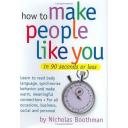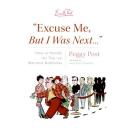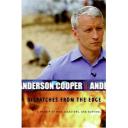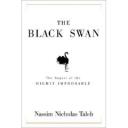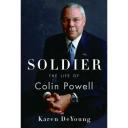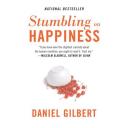This is a book about building rapport on your first impression. As the author stated, you have roughly 90 seconds to make a first impression – making the best impression during these 90 seconds makes a whole world of difference. My main take-aways:
1. Be congruent of your body language (3 V’s: visual constitute 55% of communication, vocal (tone) 38%, and verbal words only 7%) from your head to toe: in your eye contacts, smile/”beaming,” head tilt (like a model would do), unbuttoned coats, open hand pointing to the heart, a slight lean (this is the subtle one), handshake, and good posture.
2. Interesting conversation: start with current event or weather then ask open ended questions on things related to the person who may have dropped the hint or clues like where they work and etc.
3. KFC: Know what you want, Find (get the feedback) and Change.
4. Synchronize to the 3 dominant sensories: visual, auditory and kinesthetics (touchy and feeling). This is nothing new to me but the quizzes are very interesting and help you differentiate which of your sensories are strong. He also pointed out the long-lasting married spouses tend to have non-overlapping dominant senses, which make married lives more interesting and probably incurring more conflicts at times as well.
5. Mirroring people’s gesture, language, attitude and tone. I didn’t know there are so many aspects of the mirroring. The tough part is to do this without being noticed and to able to conduct a meaningful conversation at the same time.
6. Identify the eye cues: Based on people’s eye movement, you can tell which of the dominant sensory type he/she is. Looking up tends to be visual (and right – fetching visual memory, and left constructing visual image). Looking side ways tends to auditory (and right – fetching auditory memory, and left – constructing auditory sound). Looking down tends to be kinesthetic (touchy) (and right – fetching past feeling, and left – internal dialog).
7. Make a memorable impression – this is a challenging one. Sometimes a memorable impression does not make a good impression. Giving easy-to-remember tag (like a nick name, certain clothing pieces – a loud shirt) could be a good way to make people remember you.
8. I like you = I am like you. If people like you, they’ll see the best in you and help you succeed. To make people like you is to mimic/synchronize your body language, verbal cue, attitude with the person. In other words, to connect with them. Who wouldn’t like that?
The author spoke with a British accent but is general easy to understand. Oh yah, he just made a memorable impression on me – the smooth Brit 🙂 This books taught me a few things. Indeed, making first impression could sometimes make or break a person’s career and livelihood. Some may consider this book a used-care sales training, but I think it’s a must for a world that’s even more connected ever. I think I’ll listen to it again.
